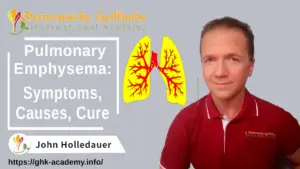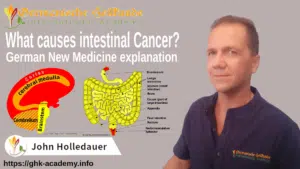
Night sweats are always a double reason for joy. First, it means your body has the microbes it needs to clear your tumor.
Second, it means that you have successfully resolved your morsel conflict and are on the best path to health again.
Sweating during the day occurs to cool the body by evaporation. Night sweats occur at night, in the deepest vagotonia, at about 4 am.
Night sweats are a typical symptom of a tuberculous healing phase. Since any TB stinks, think of skin TB in sweating feet; night sweats also smell a bit strange.
In night sweats, the body temperature is only slightly elevated. It is also called, “subvebrile.”
Night sweats are not related to fevers. Fever, instead, belongs to the healing phases of the cerebral cortex. Sweating during menopause also has an entirely different reason.
Question – in which SBSs do the healing phases proceed tuberculously?
Answer – in all the old-brain, controlled SBSs, that is, in the glandular and gland-like tissues. In the glandular tissue, it is about the morsel conflict.
In the glandular-like tissue, it is about the violation of integrity, attack, and disfigurement, but also in the mammary glands, it is about the worry or dispute conflict.
In these programs, we have night sweats in the healing phase.
First, you have the microbes, and that is always good. A healing phase without microbes is never good, because the tumors remain and do not get broken down.
We do not have microbes when we practice over-hygiene; over-hygiene is nonsense.
So once you drink unboiled milk or smooch with the dog, you have all the necessary microbes.
Second. Night sweats is a sure sign of the healing phase. Thus, you have just solved a morsel or disfigurement conflict.
Even in the case of old-brain-controlled breast cancer, you have night sweats in the healing phase.
Night sweats mean nothing more than that you are in the healing phase with your cancer, which has become bigger and bigger, and the cancer is just decaying tuberculously, necrotizing.
You can think of it as the apple that is rotting and decaying.
How long night sweats last depends on the course of the conflict. The longer the conflict-active phase was, the longer the healing phase will be.
If you are in hanging healing, you can have night sweats every night.
But if you resolve the conflict after a few days, you have night sweats for a few days, or only one night of sweating, but they are intense.
In conventional medicine, cancer patients who have tumors that are treated with chemo experience a halt in their night sweats with the first chemo dose.
This is because chemo lifts the patient from the vagotonic healing phase into sympathicotonicity, and thus, the healing phase is interrupted.
Since microbes invariably work only in vagotonia, chemo stops the healing phase. I once asked a leading oncologist in a hospital how he would explain this connection.
He answered: “During sleep in the REM phase, rapid eye movement, one could easily start sweating.”
I sometimes wonder whether to laugh or cry at such nonsense.
Attention!
If you run to the conventional doctor because of night sweats, you are potentially under suspicion of cancer, which is also quite justified.
The dangerous thing is that the conventional doctor does not distinguish between active cancer and one in the healing phase.
Keep studying Germanische Heilkunde, and learn the GHK while you are healthy. Best you make it your hobby, you will have many ‘aha’ experiences. And no doctor or medication will ever stand again between you and your health.
Until the next video,
Bye





| Cookie | Duration | Description |
|---|---|---|
| cookielawinfo-checkbox-analytics | 11 months | This cookie is set by GDPR Cookie Consent plugin. The cookie is used to store the user consent for the cookies in the category "Analytics". |
| cookielawinfo-checkbox-functional | 11 months | The cookie is set by GDPR cookie consent to record the user consent for the cookies in the category "Functional". |
| cookielawinfo-checkbox-necessary | 11 months | This cookie is set by GDPR Cookie Consent plugin. The cookies is used to store the user consent for the cookies in the category "Necessary". |
| cookielawinfo-checkbox-others | 11 months | This cookie is set by GDPR Cookie Consent plugin. The cookie is used to store the user consent for the cookies in the category "Other. |
| cookielawinfo-checkbox-performance | 11 months | This cookie is set by GDPR Cookie Consent plugin. The cookie is used to store the user consent for the cookies in the category "Performance". |
| viewed_cookie_policy | 11 months | The cookie is set by the GDPR Cookie Consent plugin and is used to store whether or not user has consented to the use of cookies. It does not store any personal data. |
You’ll be informed by email when we post new articles and novelties. In every email there is a link to modify or cancel your subscription.